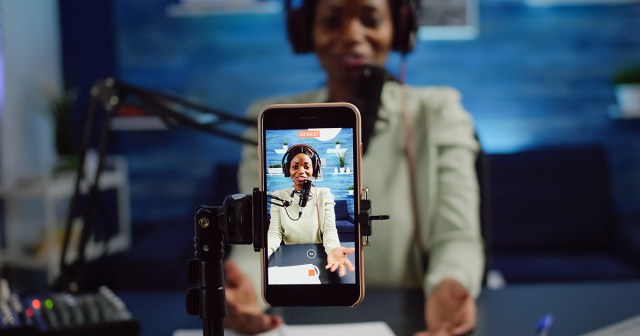
Learn more about the creator economy in our dedicated site section.
“People don’t realize that these content creators are actually… real entrepreneurs,” Taylor Lorenz tells Gary Vaynerchuk on The GaryVee Audio Experience. Listen to their full conversation below.
While this job “has the worst reputation,” Lorenz says, “It’s actually incredibly, incredibly hard. You [have] to be a great storyteller. It’s an enormous amount of work.”
Vaynerchuk agrees, noting “There is like deep analytics to what time you post, what is the best feature that you can use right now.” The end result, he says, is “strategic organic content.”
Being a successful creator requires “truly a high level of entrepreneurship, but because the numbers are lucrative, and often, not always, the people are young. There’s this subconscious disrespect for the craft,” Vaynerchuk says.
Lorenz agrees, adding that when technologies are “adopted by young people” many “people are inherently dismissive” and that applies doubly for “young girls.”
“Extremely Online,” Lorenz’s new book, dives into the history of social media and explores trends that made and broke platforms and apps as the creator economy developed.
Learning From Vine’s Mistakes
Lorenz sees Vine as one of the great almosts.
“I think Vine could have really rivaled TikTok. Like Vine was the premium to TikTok,” she says. However, the founder “made a series of decisions that I think sort of set them up to be in this difficult spot.”
First, “he insisted on separating that social experience and the media consumption experience,” she says. “They also alienated their whole first class of content creators.”
Why? Lorenz explains, “They wanted it to be about one to one IRL friends close friends. I think that was a mistake.”
Snap (FKA Snapchat) is another, albeit less dramatic, cautionary tale of not embracing influencers. Yet it lives on for Gen Z as a preferred messaging app, Vaynerchuk notes.
Rather than watching the trends and noticing how their app was being used, they did not learn from successful companies, which were able to pivot from their origins. Lorenz advises, “Be flexible, because these founders, they never understood… or predicted how their products would end up being used.”
“It’s called being consumer centric,” adds Vaynerchuk.
The Next Big Thing(s)
Lorenz isn’t willing to try to predict the next TikTok (despite repeated presses from Vaynerchuk), but she does note that there is an observable “desire for sort of simultaneous ephemeral experiences.”
Meaning? Clubhouse and Twitter Spaces might not have been long-lived, popular phenomena, but there is a void to be filled. Perhaps Be Real will evolve, or maybe TikTok Live “fulfills that need.”
Lorenz says, “I don’t know if we’ll see like a separate app, or like feature sets building into that. But that definitely seems to be like a desire from users.”
Also, Lorenz predicts “there’s a lot more room for small niche apps, and people want to spend more time with like, sort of restricted communities. That’s why you see more people moving into, like, Discord and these group chat platforms.”
After all, she says, “There just continues to be opportunity on the internet.”
What to Watch
Companies are starting to understand “creators need to get paid,” Lorenz says, so she’s keeping an eye on their evolving business models as platforms are “rolling out these different revenue options.”
“YouTube shorts has really … taken off in certain ways, and so I think certain people are monetizing just through that. So I’m just looking more at the revenue streams and seeing like, OK, how are people building these businesses of the future?”
But, Lorenz says, “ I think increasingly, people are not relying on the platforms, right. They’re doing the merch lines and the product lines and things that are not necessarily tied to advertising.”
Then there’s the medium-term impact of the Hollywood strikes. Next year, when we start to see the dearth of new content, Lorenz predicts, “I think it’s a huge opportunity for people that make content on the internet.”
So is creator a more viable career track than it was 15 years ago? “It’s more competitive today, I would say, than 2007 or ‘08, but we also have a lot more tools. You don’t need as big of an audience,” Lorenz says.
Ultimately, she thinks, “You have to ask yourself, ‘Can I build a media business around this thing that I love?”

